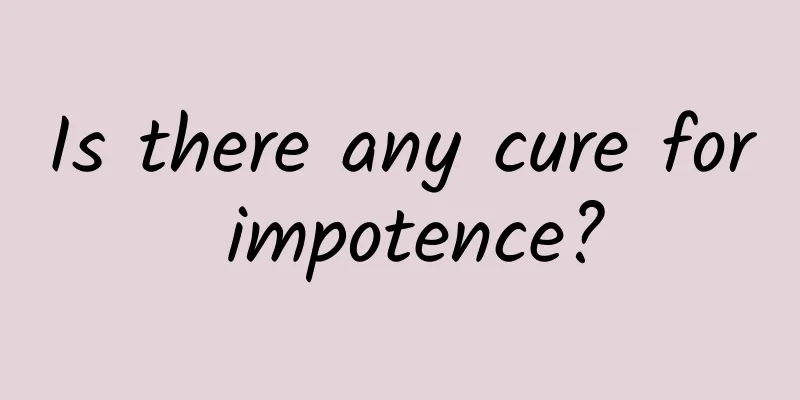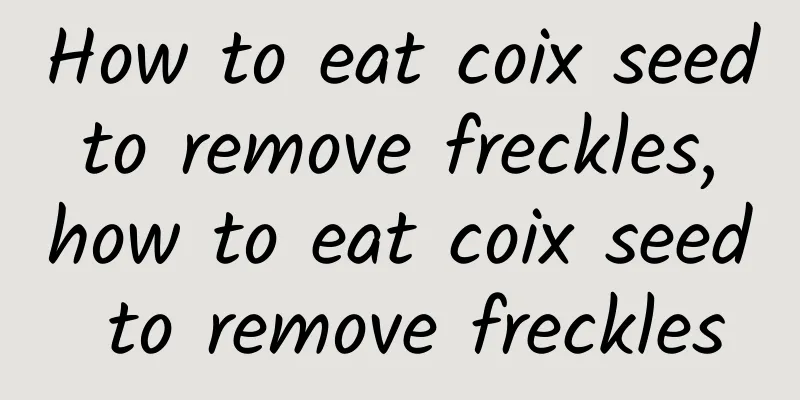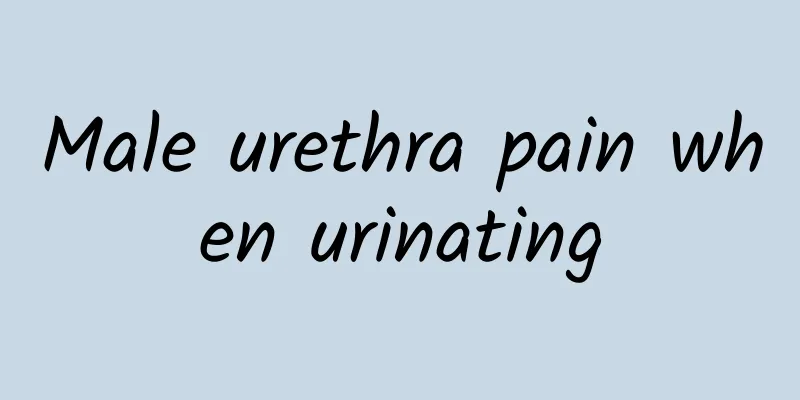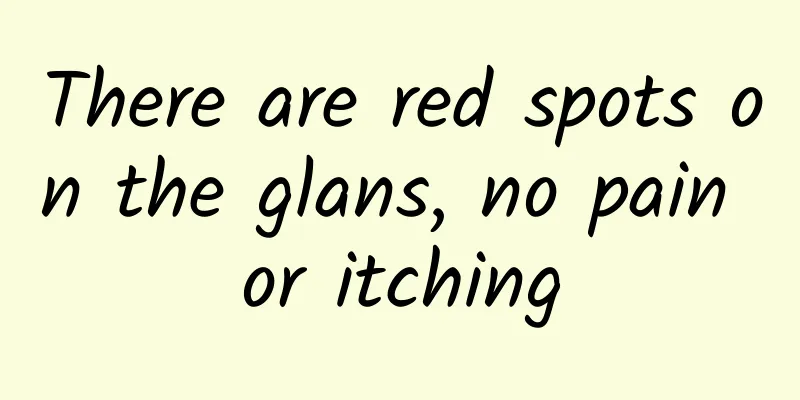Is surgery or non-surgical treatment better for urinary tract stones?

|
If there is a problem with the urinary system, it may cause some common diseases. For men, if they do not take good care of their bodies and protect their urinary systems in their daily lives, it is easy to cause urinary stones, which have a high incidence rate. So, once they suffer from this disease, what methods should men use to treat it? Treatment Treatment of angina 1. Relieve spasms and relieve pain: 2. Acupressure to relieve pain: 3. Local closure of skin allergy areas: 4. Acupuncture therapy: Non-surgical treatments Non-surgical treatment is generally suitable for patients with stones less than 1 cm in diameter, smooth edges, and no obvious urinary obstruction or infection. Non-surgical treatment can also be temporarily performed for some larger staghorn stones in the kidney that do not cause clinical symptoms. 1. Drink plenty of water: Increase urine volume to flush the urinary tract, promote the movement of stones downward, dilute urine and reduce crystal precipitation. 2. Chinese herbal medicine treatment: Drinking tea in daily life can not only prevent and improve the treatment of stones, but also regulate the balance of human body mechanisms and enhance human resistance. This type of Chinese herbal tea mainly includes dandelion, honeysuckle, coptis chinensis, etc. 3. Acupuncture method: Increase the peristalsis of the renal pelvis and ureter, which is beneficial to the discharge of stones. 4. Regular jumping activities, or inverted posture and patting activities on the stones in the kidney can also help to expel the stones. 5. Others: For those with bacterial infection in urine culture, sensitive drugs (Ofuxin, Miedling) should be used to actively fight the infection. For those with metabolic disorders in the body, the primary disease should be actively treated and the acidity and alkalinity of urine should be adjusted. Surgical treatment If urinary obstruction caused by stones has affected kidney function, or non-surgical treatment has failed, and there are no conditions for extracorporeal shock wave lithotripsy, surgical treatment should be considered. Preoperative preparation: The renal function of both sides must be understood before the operation. If there is infection, antibiotics should be used to control the infection. Patients with ureteral stones should undergo urinary tract plain film before entering the operating room or on the operating table for final positioning of the stone. Surgical methods: Depending on the size, shape and location of the stones, the following surgical methods are commonly used: 1. Pelvic or renal sinus lithotomy: Open the renal pelvis and remove stones, staghorn stones or renal cisterns. Sometimes, an internal renal sinus pelvic or renal cisterns lithotomy is required. 2. Renal parenchyma lithotomy: If the renal stones are large and cannot be removed through the renal sinus, the renal parenchyma needs to be opened to remove the stones. 3. Partial nephrectomy: It is suitable for multiple stones in the renal pole (mostly in the lower pole of the kidney) or in the dilated and poorly drained renal clavicle. The renal pole or the renal clavicle can be removed together with the stones. 4. Nephrectomy: If one side has kidney stones and severe hydronephrosis or renal abscesses, which has caused severe damage to or loss of renal function, and the other side has good renal function, the affected kidney can be removed. 5. Ureterotomy: Ureterotomy can be performed for patients with ureteral stones larger than 1 cm in diameter or impacted stones that cause urinary obstruction or infection and who have not responded to non-surgical treatments. 6. Lithotomy: If the diameter of the stone in the middle and lower ureter is less than 0.6 cm, it can be removed through cystoscopy using a special basket or catheter. |
<<: How should male urinary stones be examined?
>>: How to perform urinary tract stone surgery? Introduction to surgical methods
Recommend
Rheumatoid arthritis exercise, regular exercise like this will heal faster
For people with rheumatoid arthritis, if they wan...
Men drink wolfberry ginger slices soaked in water
With the continuous development of modern society...
Normal size of erectile dysfunction
When men have sex, their penis needs to be erect....
Understanding the test results: What does a positive thyroid autoantibody test mean?
Thyroid globulin antibodies (TgAb), thyroid perox...
Epididymis pictures
The epididymal cyst is a human organ composed of ...
Causes of nipple pain in men
In many people's minds, they think that only ...
HPV self-testing method for men
The male HPV self-testing method mainly includes ...
Whitening of the testicular skin
We all know that the skin color of the scrotum is...
Introduction to Circumflex Erectile Dysfunction
Let me introduce you to circumferential balanitis...
What should men do if their genitals become inflamed?
Everyone knows that men's reproductive organs...
How to train forearm muscles
Men all want to have a good body, and the standar...
What is postural hypotension? Who is most likely to get it?
When people reach a certain age, as their body me...
What can men eat to nourish their kidneys?
If a man has kidney deficiency, it will have a gr...
Excessive secretion of prostatic fluid
Semen is one of the components of semen flow, and...
Postoperative care for circumcision surgery
There are many common diseases among men. Prostat...









